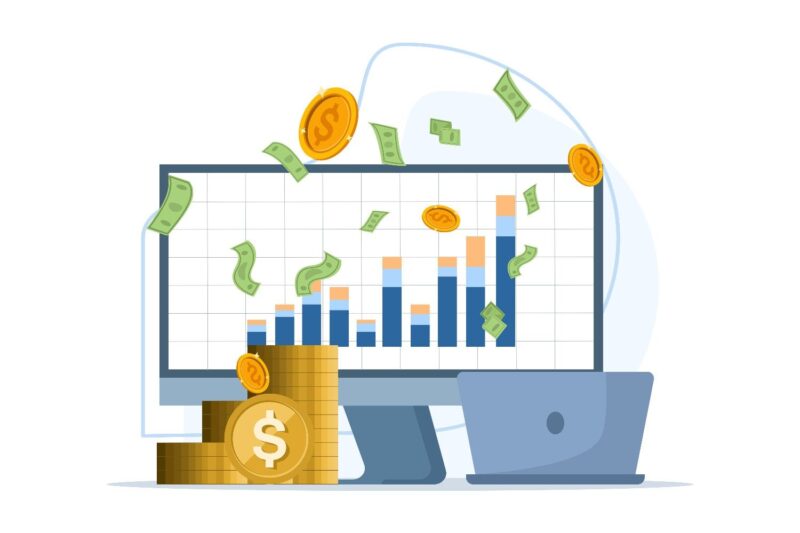When you hear people discussing equity vs debt investments, money management can seem like one huge puzzle. The excellent news is that you can understand it without being a finance expert.
Picture your money to be a plant. It grows stronger and healthier over time when you “water” and “nurture” it with the right investment options. Let’s simplify and make it simple to understand.
What Are Equity Investments?
When you choose to invest in equity, you become a small partial-owner in a company. Picture this like purchasing one slice of a pizza (the company is the whole pizza and your share is that slice).
When the company is successful and profits are made, your slice (your share of the company) will go up in value. If the company is less successful, your slice will decrease in value. This is what makes equity so thrilling and at times scary.
Common choices for equity investing
- Stocks or Shares – when you buy a portion of a company directly.
- Equity Mutual Funds – pooling your money together with others to invest in other stocks.
Why invest in equity?
In the future, they have an excellent chance of building wealth.
- They can help you in achieving significant financial goals, such as purchasing a home or retiring.
- They have a higher risk and return, so you could make a lot of money, but you may also lose some.
For Example, your money increases to ₹20,000 if you invest ₹10,000 in a company and the value of its shares doubles.
However, the value of your investment could decrease if the business experiences losses.
What Are Debt Investments?
Debt investments are exactly like lending your money, but they are done in a careful and smart manner. In this situation, you’re providing money to the business (or the government), and they pay you interest for using it. You don’t actually hold any stock in the business.
Consider the following situation: You lend your friend ₹1,000 and, after a month, you demand ₹1,050 in return. Your “return” is that additional ₹50; that’s how debt operates.
Typical Debt Investment Choices
- Fixed Deposits (FDs) – Available from banks at fixed interest rates.
- Bonds – Financing made available to enterprises or states for a limited duration.
- Debt Mutual Funds – Contained numerous debt instruments for less risky returns.
Reasons for Choosing Debt Investments by People
- Less risky and more stable than stocks.
- Great for meeting short-term money goals.
- Good when you desire an income that is regular and also have a low risk and return as your expectation.
For example, if you put ₹10,000 in a bond offering 8% interest, you’ll get ₹800 after one year, steady and predictable.
Quick Comparison Table: Equity vs Debt Investments
| Feature | Equity Investments | Debt Investments |
| Ownership | You own part of a company | You lend money |
| Risk and Return | High risk, high returns | Low risk, steady returns |
| Income Type | Dividends, capital gains | Fixed interest income |
| Liquidity | Easy to buy and sell | Moderate liquidity |
| Time Horizon | Best for long-term | Best for short to medium-term |
| Goal Type | Wealth creation | Financial goals need safety |
| Examples | Stocks, Equity Mutual Funds | FDs, Bonds, Debt Funds |
How to Decide Which Investment Option Suits You
Equity Investments are the right choice if
- You are in search of greater earnings and quicker money growth.
- You are investing for the long term to get money for education or retirement.
- You are capable of managing temporary market fluctuations.
- You are willing to accept some degree of risk in your investment alternatives.
Debt Investments are the right choice if
- You prefer security and a constant return rather than a high return.
- You are saving for a short-term financial goal (like a gadget or a vacation).
- You want to invest in options that have little or no risk.
- You enjoy getting interest income regularly.
Smart tips to remember
- Start early – The sooner you start, the greater the result of your money will be.
- Be consistent – With SIPs (Systematic Investment Plans), make regular investments.
- Rebalance – Review your portfolio on an annual basis.
- Know your comfort zone – Don’t invest in something that makes you lose sleep!
- Stay informed – You invest in the options that you understand the best, and the price of that comes along with it.
Conclusion
At the end of the day, equity vs debt investments isn’t a battle; rather, it is a balance. Both are important in helping you achieve your financial objectives.
While debt offers stability and peace of mind, equity assists in the long-term creation of wealth.
Therefore, ask yourself, “Which one suits me best right now?” rather than, “Which is better?”




